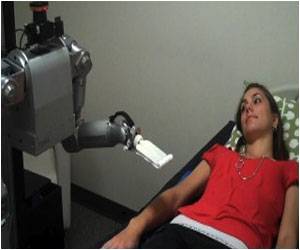
For several years, computer scientists have used computer algorithms inspired by evolution to train simulated robot brains, called neural networks, to improve at a task from one generation to the next. In computer simulations, the research team connected neural networks to simulated robotic legs with the goal of evolving a robot that could walk smoothly and stably. After several cycles of evolution and virtual extinction, the team discovered that the lineages that survived were the most evolvable and, therefore, had the greatest potential to produce new behaviors. Overall better solutions to the task of walking were evolved in simulations with mass extinctions, compared with simulations without them.
Practical applications of this research could include the development of robots that can better overcome obstacles such as robots searching for survivors in earthquake rubble, exploring Mars or navigating a minefield.
The study appeared in PLOS One.
Source-IANS









